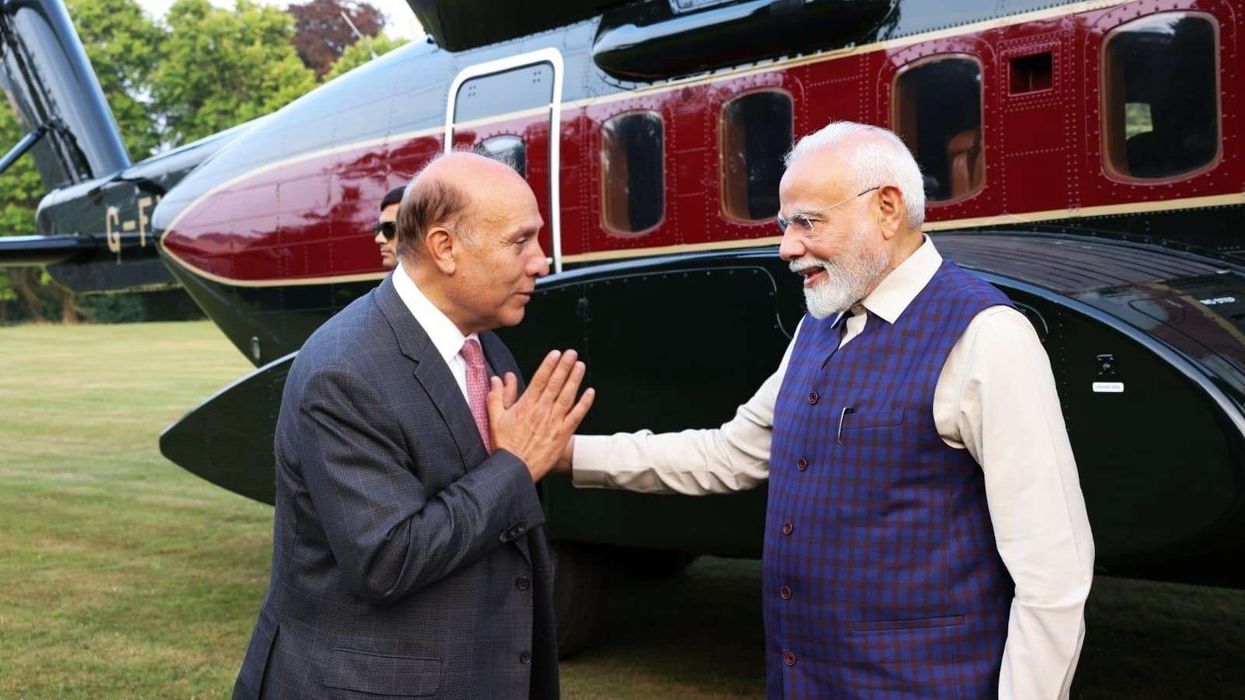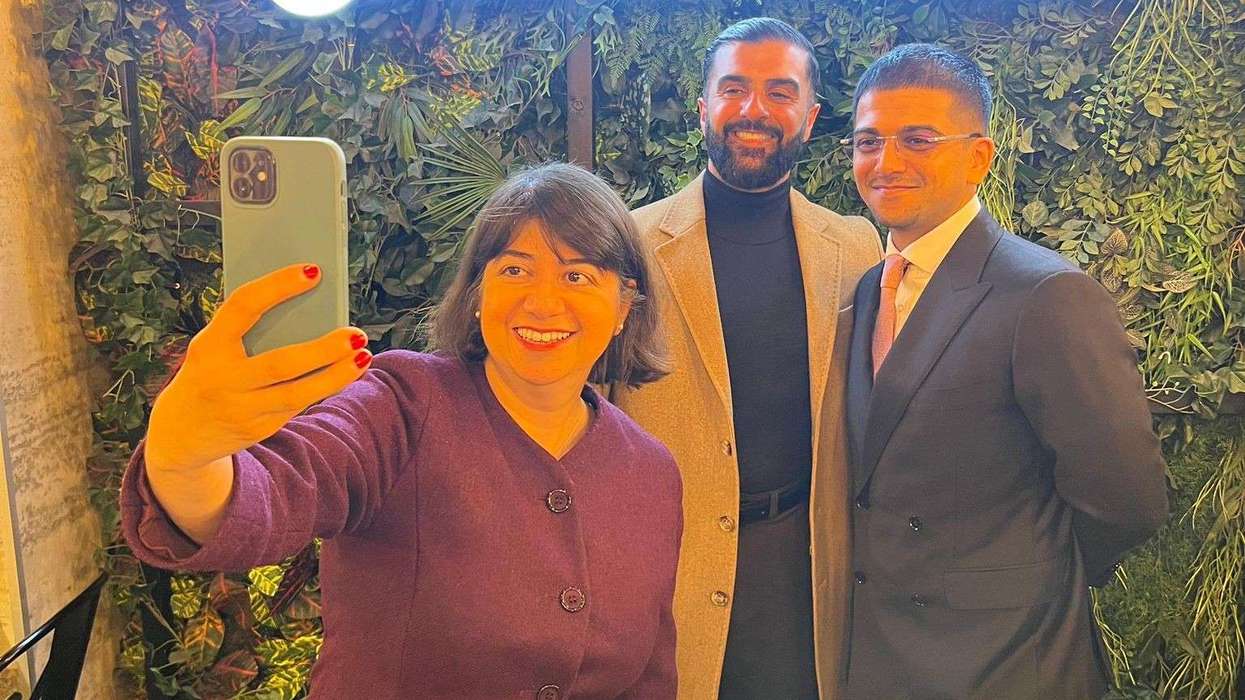SURINDER ARORA, who bought Luton Hoo Hotel, Golf and Spa for £50 million in 2021, held a “groundbreaking ceremony” last Thursday (9), to signal the start of construction work to refurbish the grade I listed mansion over the next two years at a cost of £170m.
Surinder, 67, founder and executive chairman of the Arora Group, was flanked by his 36-year-old son, Sanjay, recently appointed CEO of the hotel, construction and property business, as they donned hard hats and picked up spades for the symbolic burial of a time capsule (containing £10 and £5 notes and a bar menu, plus a history of Luton Hoo).
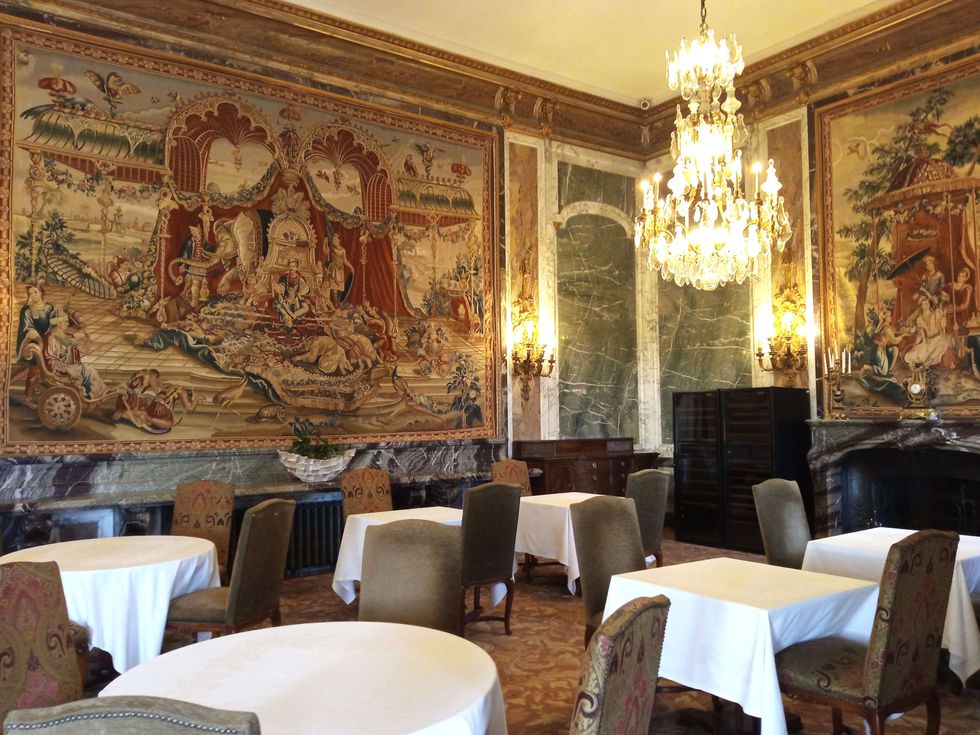
They were joined by Sebastien Bazin, the French chairman and chief executive of Accor Hotels, which runs 45 brands throughout the world, including Fairmont in the luxury category.
When the 228-room Luton Hoo reopens after the completion of renovation work, it will run as a five-star Fairmont hotel.
Work has already started on moving the existing golf course at Luton Hoo, so that it becomes attractive enough to stage the US vs Europe Ryder Cup in 2035.
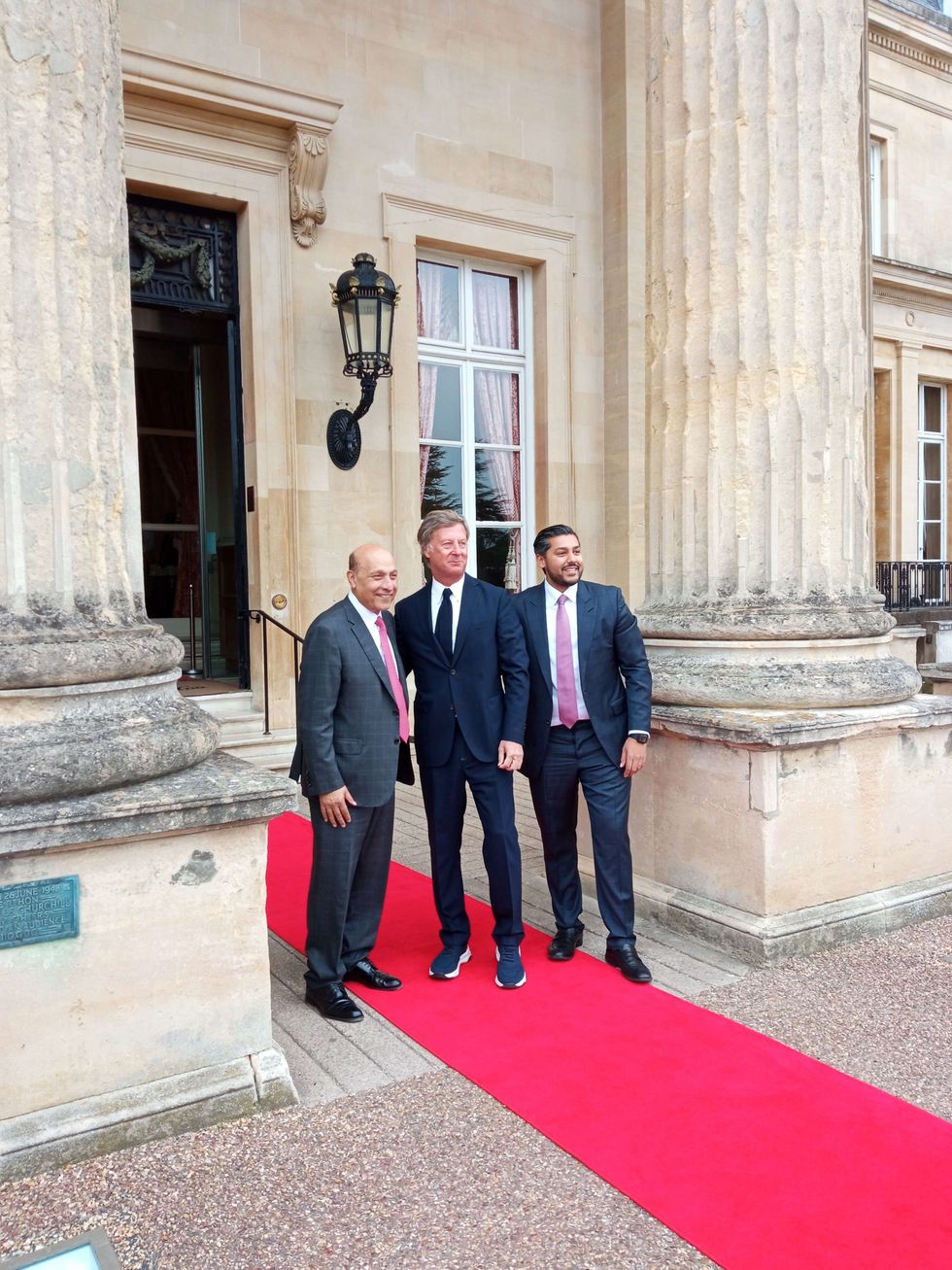
Among the 100 people who attended the groundbreaking ceremony were local government councillors, who are enthusiastic about a project they say will provide an economic boost to the area.
The new hotel will be labour intensive because of the level of service that will be offered, and it will employ an estimated 400 people.
India’s prime minister, Narendra Modi, stayed at Luton Hoo in July when he came for the signing of the UK-India Free Trade Agreement with his UK counterpart, Sir Keir Starmer.
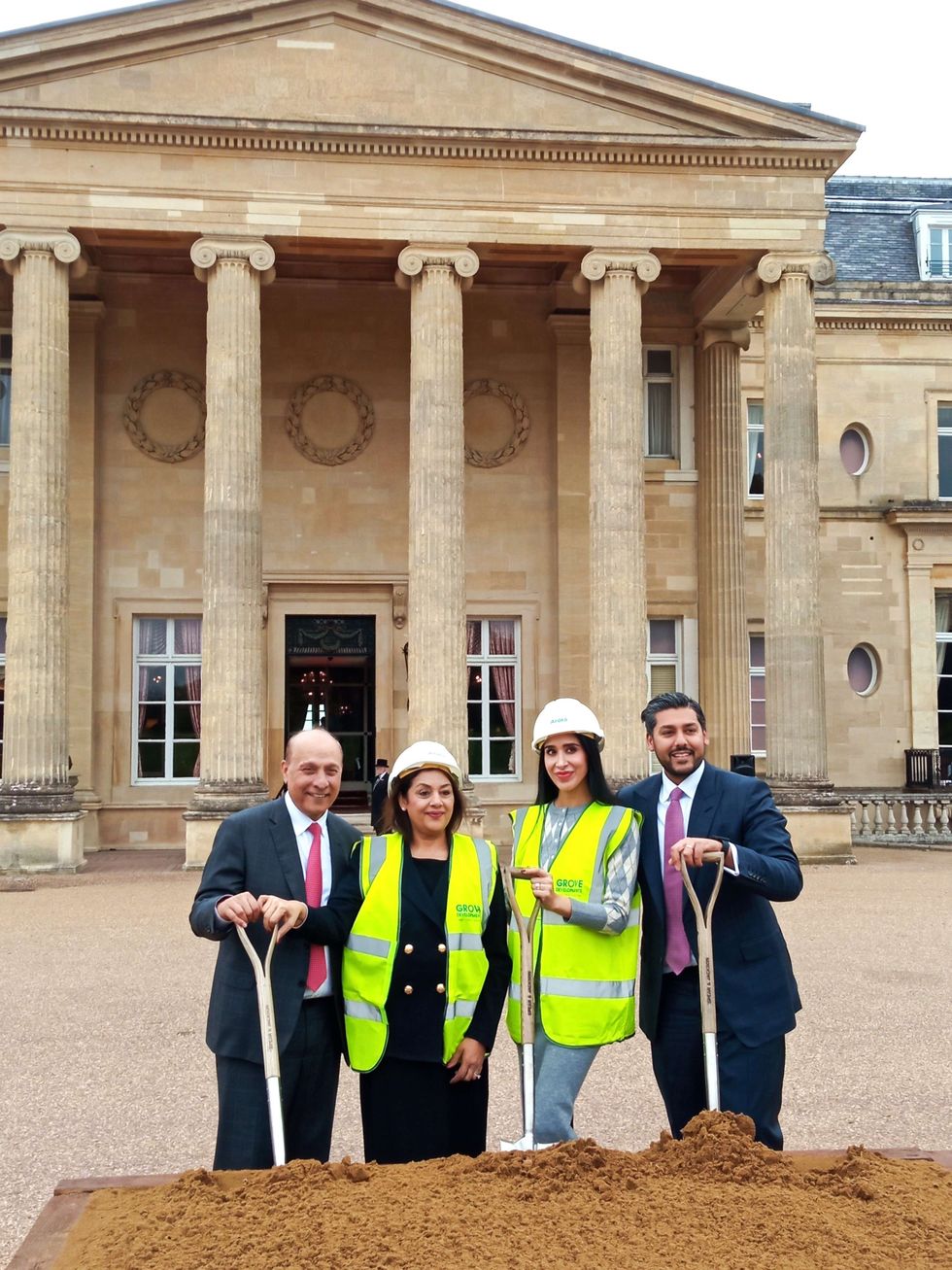
Luton Hoo, which has been patronised by royalty and the English upper classes, has a long history. The present mansion was built in 1767 by John Stuart, the 3rd Earl of Bute, to a design by Robert Adam, surrounded by gardens laid out by the celebrated landscape artist, Lancelot “Capability” Brown.
The mansion was bought by the Canadian Elite Hotels in 1999 and opened as a hotel in 2008. When it was offered for sale over four years ago, Arora didn’t initially see it as fitting into his group, which includes the O2 International in Greenwich and the Fairmont Windsor Park Hotel.
In an interview with Eastern Eye conducted at Luton Hoo, he recalled: “Sanjay came here one Sunday for afternoon tea with his wife and son. He said, ‘On Monday, I’m going to take you somewhere for a quick tour.’ As we drove through the gates, I said, ‘My god, I didn’t realise there were estates like this. Sanjay, we are going to buy this.’ We actually did the deal in three weeks without surveys, without searches. I’m grateful we are the custodian of such an amazing estate.”
This week a team of auctioneers will catalogue the furniture, fixtures and fittings that can be sold, with the proceeds earmarked by the Arora family’s charitable foundation for local charities.
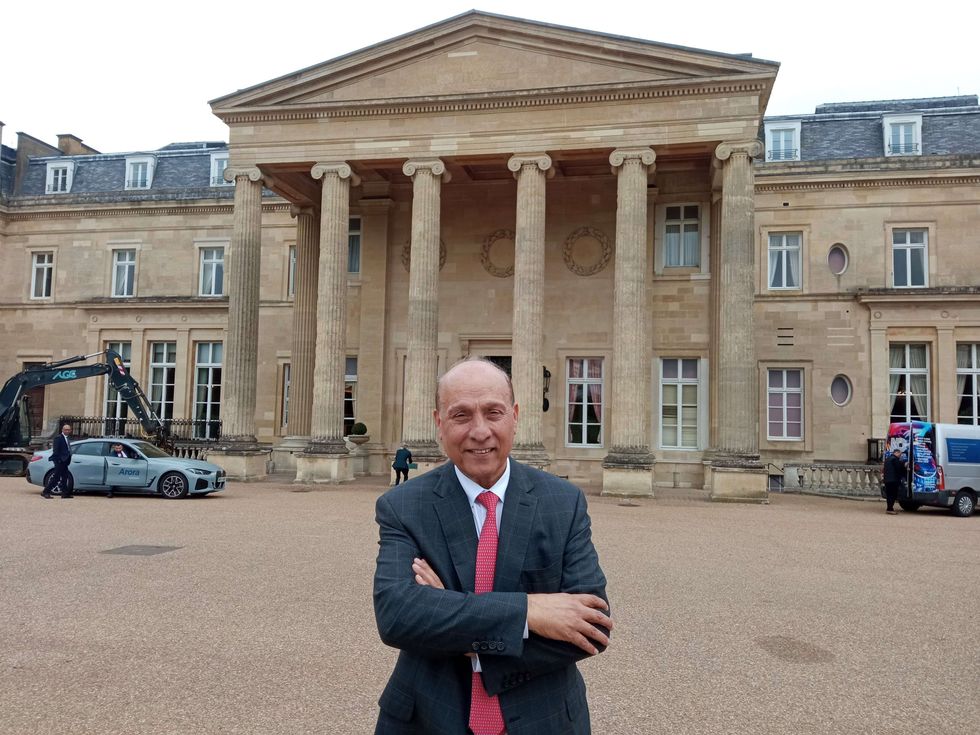
The trees at Luton Hoo are currently ablaze with autumn colours. The mansion – with its weathered look and surrounded by stone lions and urns and a fountain – has been beloved of filmmakers over the decades.
Eastern Eye was given a tour of the mansion by Raj Shah, the group’s chief commercial officer, who began in the main sitting room where afternoon tea was served.
“We can do weddings here as well, with the manicured grounds outside,” he said.
From the Werner restaurant, with walls decorated with rich tapestry, he pointed out the location of the Weir river and the grounds where Modi’s helicopter had landed. Arora, who welcomed the Indian prime minister, had brought in his best Gujarati chef so his guest could have some home cooked vegetarian fare.
Shah pointed out the Churchill Room, named after Britain’s wartime leader who had addressed a 110,000-strong crowd in the grounds of Luton Hoo in 1948.
There will be a new club, a bigger conference centre, and other wings – the Parklands and the Flower Gardens – will have refurbished bedrooms.
There might even be a lido on the river which flows through a lake, said Shah.
The original chapel might be kept as a meeting room or turned into a restaurant.
“We might discover something, because there is a void underneath,” Shah said.
Permission had been given for a new lift to add to the two small ones that ferry guests to bedrooms upstairs.
Sanjay told the gathering: “I know our portfolio has grown from strength to strength, but I’ve always wanted to go into a different class of hotel. These country retreats are real, untapped hotels and resorts in the UK, and I think people have not done enough to showcase the beauty of the English countryside. My goal is to make this the best countryside five-star retreat in the whole of the UK.”
Thanking the banks Santander and NatWest for their support, he said: “We hope to pitch for the 2035 Ryder Cup.”
Bazin said he had set his alarm clock at 3am to fly in from Malaga and would leave to make a 2pm meeting in Paris.
To Arora, whom he held in high regard, Bazin said: “You are probably the only owner of the Accor network for whom I will do this. Accor is big, with more than 6,000 hotels and 350,000 people. I meet thousands of different hotel owners, but there are less than five who have something I really admire. There are a lot of dreamers. You not only have vision and ambition, you also have the art of responsible hospitality, connecting cultures with heartfelt care.”
Among those who expressed support for Arora was Adam Zerny, leader of Central Bedfordshire Council, who pledged: “The dream of Surinder and his family is also going to be our dream. In the years to come, we’ll do everything we can to support Surinder.”
Another councillor, Kevin Collins, whose Caddington ward includes Luton Hoo, said Arora had anticipated all the improvements the local authorities had wanted before planning consent was granted. “It’s a beautiful place and now it’s in the custodianship of someone who loves it as much as we do,” he said. “We heard the tale of how Sanjay came here… history turns on little moments. This venue is going to be the place that people come to for a once in a lifetime experience.”
Rachel Hopkins, Labour MP for Luton South and South Bedfordshire, said: “I was absolutely won over by Surinder’s dream. Surinder and I have the same dreams and aspirations for our young people across the hospitality, sport and construction industries.”
A council officer told Eastern Eye: “We would be looking to maintain as much of the historic character as we can. Surinder can remove or do whatever he wants with the furniture.
“But light fittings and the things which complement the original features of the building, we would be looking to retain, and, if necessary, repair and upgrade. Historic England will always be involved in an application like this, because it’s a Grade I listed building.”
